Beautiful? No. Practical? Not That, Either.
Amid the confusion of construction that has made a maze of Lincoln Center, the little tree-lined avenue that runs between the Metropolitan Opera House and Lincoln Center Theater might appear, from afar, to be an oasis. (Look! In the distance! Greenery!)
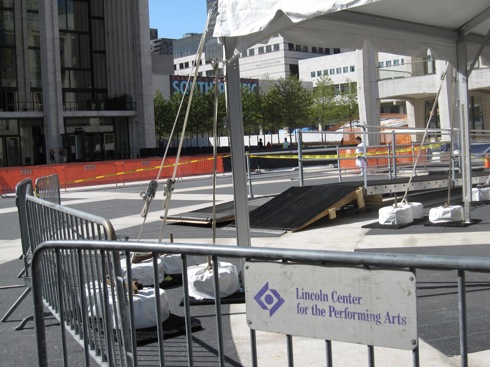
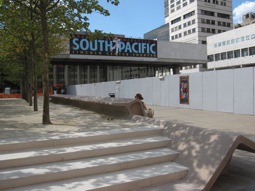
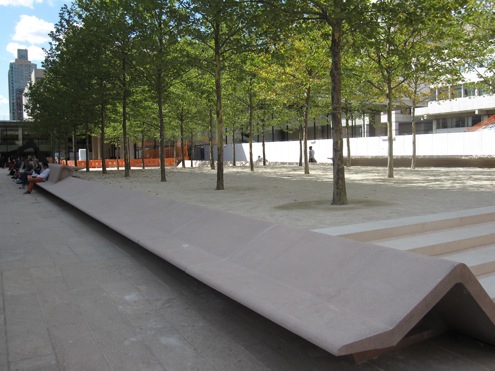
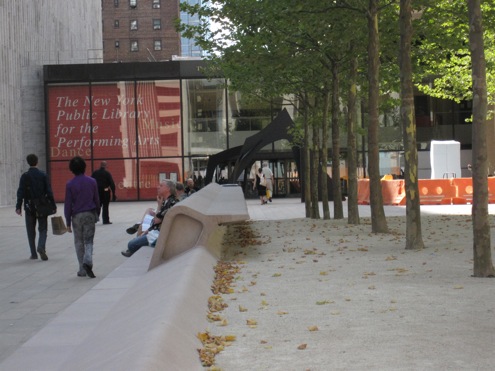



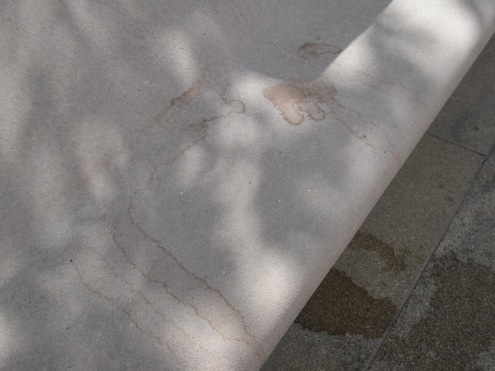
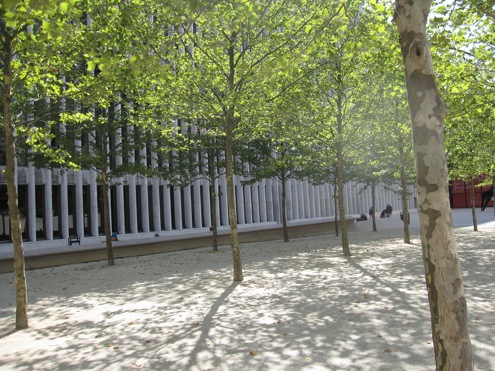

That impression would be a mirage, and not only because the adjacent reflecting pool, where Henry Moore's "Reclining Figure" once basked, is drained and demolished for reconstruction, too.
Nor is the main trouble the absence of the shady London planes that grew there in travertine planters, whose sides doubled as seating -- though I have mourned those trees, especially in wintertime, when the white lights of their snowflake ornaments used to sparkle after twilight.
The real trouble is the pair of horrid concrete benches that have been installed alongside the newly planted adolescent plane trees -- benches so repellent that Bloomberg's Jeremy Gerard yesterday described them as having "all the aesthetic appeal of an off-ramp on I-95." He was not employing hyperbole.

The phrase that leaps to my mind, however, is "housing project," closely followed by "community college." This is seating so cheap-looking and lacking in elegance that it would fit right in, were Lincoln Center one of those public spaces where good design isn't even an afterthought. (No, I am not taking a shot at people who live in public housing or study at community colleges. I am taking a shot at the tradition of designing those places to be aesthetically oppressive rather than pleasing.)
When I first saw the benches, my immediate impulse was to hope -- irrationally, but such is the nature of hope -- that somehow they weren't finished yet. Surely these drab things couldn't be part of the same project that resulted in a breathtaking Alice Tully Hall? But there they are, lining the plaza from Avery Fisher Hall to the New York Public Library for the Performing Arts.

If objections to them were limited to their appearance, their presence on the campus would be bizarre enough. What makes it exponentially more bewildering is that these objects that look so terribly utilitarian aren't practical, either.

For one thing, sandpapery concrete has a nasty tendency to catch on fabric. The first time I sat on one of the benches, I was wearing tights; they were instantly snagged. What about someone who's dressed up to go to a play or an opera or a concert -- particularly in the warmer months, when people aren't wearing coats? The benches, so convenient for awaiting a friend pre-show or formulating a plan post-show, will tempt them. But visitors' delicate clothing will be at the mercy of rough concrete, and they'll be left angry and embarrassed by snags and runs.
For another thing, the benches aren't holding up so well, after only a few weeks of use. Presumably, the durability of this seating, if not of the public's dress, was a significant consideration in its favor. So should Lincoln Center be asking for its money back, given that repairs evidently have been needed already? If the patching below is any indication, the future looks more than a little jagged and crumbly.

And, due to the benches' stain-absorbing surface, grubby as well.
Standing under the trees on a sun-dappled afternoon, it's possible to understand what effect the grove might have been intended to have on the plaza.
But it's never going to happen. The benches make sure of that.

2 Comments